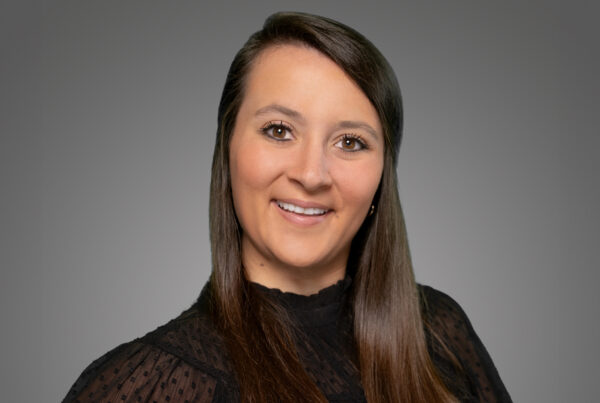Deb Sofield is a seasoned expert in the field of crisis communications, with a wealth of knowledge and experience to share. With a career spanning decades, Deb has worked with organizations and individuals, helping them navigate some of the most challenging situations in the world of public relations and crisis management. Her insights and strategies have been instrumental in guiding businesses and leaders through crises, ensuring that they not only survive but also thrive in the face of adversity. In this interview, Deb Sofield provides invaluable insights and advice on the art and science of effective crisis communications.
What inspired you to enter this field and what motivates you to stick with it?
People always think it’s funny when I say I really wasn’t good at anything else besides speaking and basketball, and one thing I learned early on as a speaker is that you can change a life and make somebody better by the words you use, the encouragement you give and by showing them how it’s done. I tell everybody I’m the luckiest person in the world. I love what I do, and I could do it every single day of the week. When you become a better speaker or presenter – I’m thrilled, I’m cheering for you. I’m the coach who wants you to succeed. I truly believe the ability to speak well is the one thing that you can learn and that will make you better in every aspect of your life. I don’t really know another skill that can lead you to success as quickly as the ability to craft your words into a message that helps people, changes lives or gives encouragement.
How do you see your industry evolving over the next five years?
You know it is interesting, that some of the rules change because today’s audience is not able to sit for hours on end, but the ability to speak publicly actually never changes. As a speaker, you must be able to read your audience, know how to reach them, take them where they need to go and give them the tools to be successful. I know for many years everyone said the future is computers, and while that is true, the ability to speak well and be heard – and that’s the key phrase… be heard – is invaluable.
I will say, for most of my clients, because you no longer have the ability to… what we say in the radio world is built to WOW. You need to start with a startling statement, something that no one else has said, and awaken your audience to the opportunity to hear a message that will benefit them. That’s why folks who want to win in any industry will hire an executive speech coach to make sure their words not only leave the stage, but touch the lives of those who are in the audience.
What current industry trend will have the biggest impact in the long run?
I honestly don’t know what AI is going to do in the world of crafting speeches, but I do know you still need the ability to speak well, craft a message for success and leave your audience wanting more. In most cases, you need to either answer the question the audience has or create an opportunity for the next conversation.
Why do you believe that crisis communications training is important for professionals in municipalities, elected officials and businesses that deal with the public? When we talk about crisis communication please know it is not If but When.
Something is coming… are you prepared? Have you done the work in advance to build your audience so that when they see something negative about your company their first reaction is that can’t be true?
Why?
Because you’ve already built success with your audience. You can’t do that overnight; this is a long-term reach. Today, we are inundated with keyboard warriors who, at the drop of a hat, will attack you. They will attack what you stand for, they will attack your political party, and they will attack you for things that are 20 years old and demand that you answer for it. I encourage every audience that I train for crisis communication to put a plan in place and lock it down. It is a living, breathing document. Don’t put it on the shelf. You have to know who to call, you have to know who’s in charge, you have to know who is not allowed to speak to the media, you have to know what is most likely coming and be prepared. I am an elected official; I have seen good people be torn apart because of something they posted or liked or shared on social media. Unfortunately, they did not do due diligence to take down any questionable post. Remember these keyboard warriors don’t care about you, this is search and destroy, it is what we call the weaponization of social media, and that’s why you need a crisis communication coach to sit with your team, figure out what’s coming and protect your company or organization.
As a speaker, teacher, coach, author, podcaster and crisis communications trainer, you wear a lot of hats. What is your favorite part of your job and why?
Wow, that’s hard to answer, I actually love it all. I do a weekly radio show that airs in four states, and is available on services and on my personal website at www.debsofield.com. That being said, I would have to say teacher, speaker and coach. I feel very blessed with the opportunity I’ve been given to help people be better and protect themselves and their company, and then move them in the direction for success. I believe in the adage, A rising tide lifts all boats.
As someone with over 30 years of experience, how have you seen the communications field change and evolve since the beginning of your career?
The field of communication actually hasn’t changed, what has changed is the audience who no longer has the ability to listen for more than 15 to 20 minutes without some sort of a break within the conversation. So, as a speaker, you have highs and lows within your talk – that’s why you tell stories, you have statistics, you have facts, you have startling statements. Years ago, public speaking was much more like an essay, it had a beginning a middle and an end. It’s not quite like that anymore. Yes, you need to begin – you’ve got a middle – and I hope you’ll end, but your audience wants a nugget of something to take home and if you don’t provide that, you probably will not have repeat attendees. I have folks who repeatedly attend my public speaking conferences because they say they learn something new every time, so, let’s just be honest, that’s a testament to me as a coach.
I am constantly learning. I had a client the other day who said, “Deb, I don’t understand when I get around a certain person I giggle.” Now, this is a high-ranking person in a major corporation. So, my question to them was, “Are you starstruck?” Here’s somebody on the outside who constantly encourages them, tells others about them and builds them up. So, for them, it is a little bit of negative self-worth not feeling deserving of all this attention, it’s also unbelievable gratitude that somebody cares. That being said, there is a term for this reaction, and it’s called laughter padding. It is a stress response to uncomfortable situations; you’ve heard your friends do it. It’s where they, in a sense, bookend a statement with a slight chuckle or giggle. Some people do it as a bit of a diversion giving them time to process their thoughts – the problem is that it could undermine their authority. Again, I’m constantly learning, and I’ll teach my audience what I now know and they’ll now figure out why they do that little giggle or chuckle and we all leave better.
You often talk about killing your comfort zone. What is the biggest piece of advice you have for people who are held back by a fear of failure?
I have to say I questioned the idea of fear of failure. Most people fail because they don’t actually try. I had a client who was adamant that he would not speak… so HR sent me to somebody else in the corporation who would. When you’re president of a company and suddenly you’re being asked to present shareholders’ address and you’re afraid, think about what a loss it is to you personally when you pass it up. Where you should be shining – you have failed. I see it happen all the time… now that being said, if you work with a speech coach your percentage of failure is minimal, if at all. Why? Because we will practice, we will make it real time and you will be prepared. The reason most people “fail” is because they didn’t do their homework and they didn’t practice out loud.
Listen, you probably have a topic that you know so much about you could speak about it for hours – and that’s the place you have to get to if you’re speaking to an audience. Your comfort zone is not going to lead you to success, it’s stepping out with confidence knowing that somebody has your back. That’s why you need an executive speech coach to help you be Rockstar Amazing.
Thanks for having me and have me back any time – Deb Sofield



